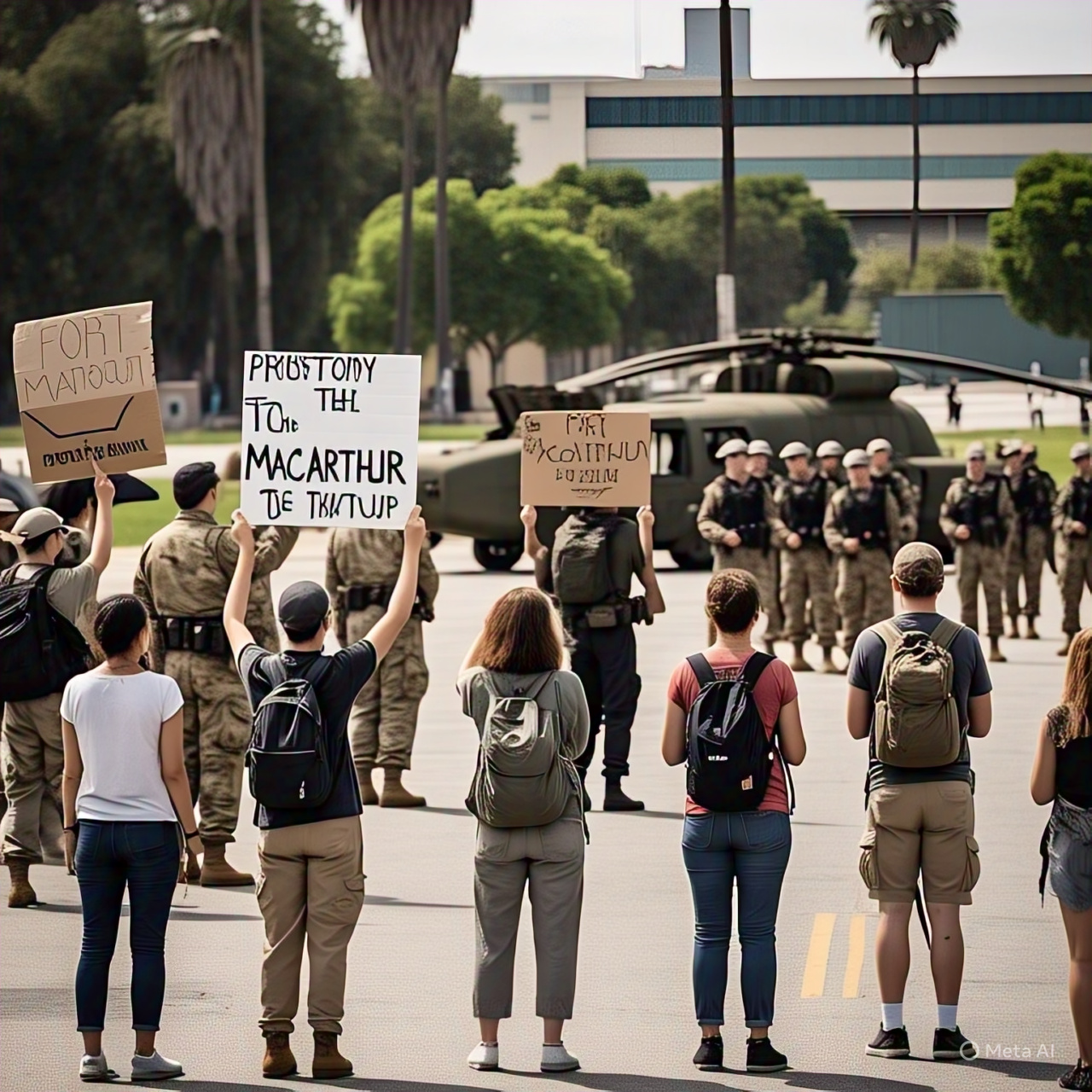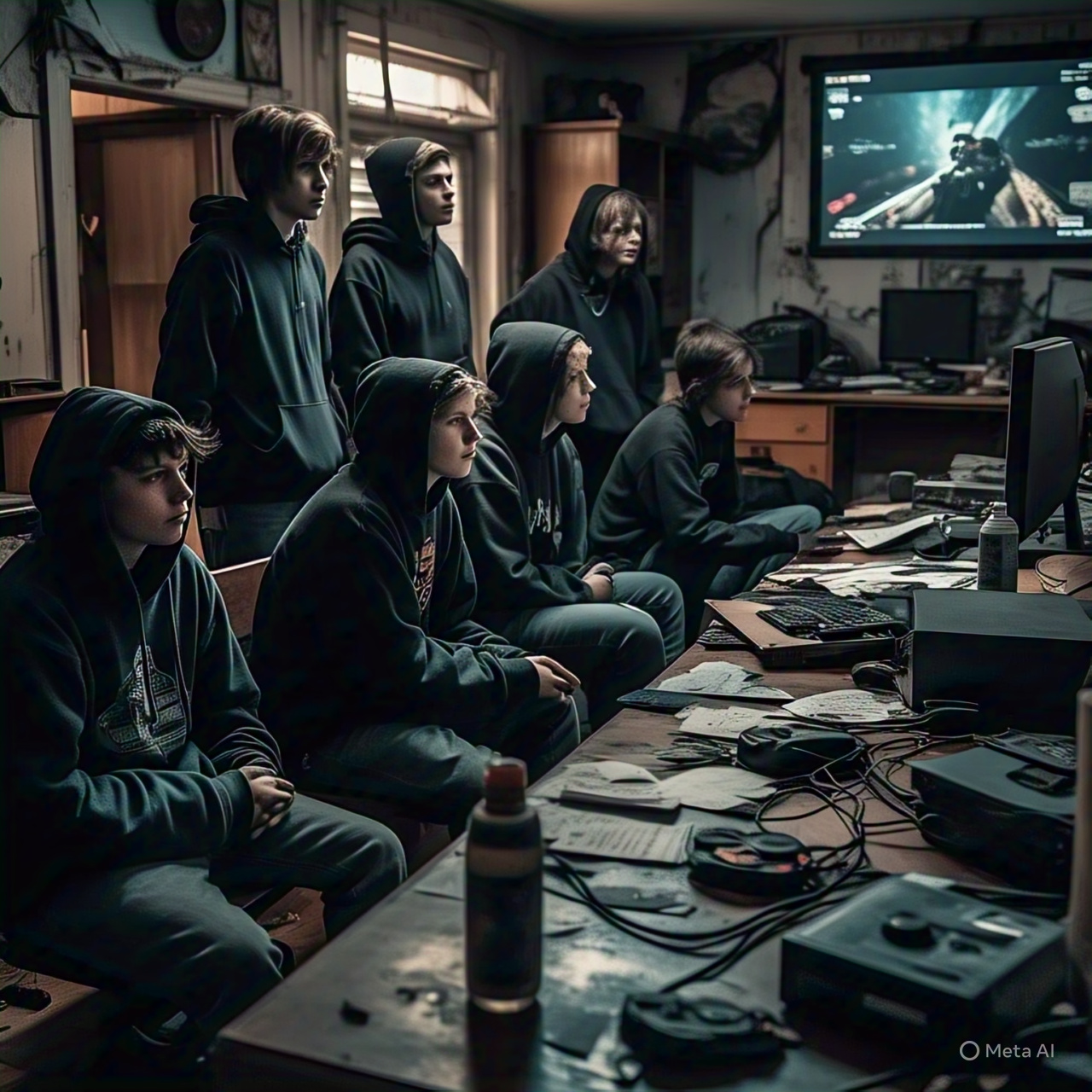🇺🇸 Domestic Deployment Sparks Outcry: Marines in L.A. Stir Legal and Civil Storm
In a move that has shocked political leaders, legal experts, and civil liberties advocates alike, active-duty U.S. Marines have been deployed to Los Angeles—the first such domestic use of active troops in recent American history. What started as a jurisdictional tug-of-war between California and the federal government has escalated into a full-blown constitutional confrontation, igniting fierce national debate and sparking a cascade of protests across the state.
📍 Background: From ICE Raids to Martial Posture
What triggered this unprecedented military involvement?
Over the past two weeks, growing protests emerged in L.A. over federal immigration enforcement actions, particularly the intensification of ICE operations in predominantly immigrant neighborhoods. The protests were initially nonviolent but escalated after a series of arrests, property damage incidents, and clashes with law enforcement. Local officials requested aid from the California National Guard—but that quickly spiraled beyond state control.
⚖️ The Legal Spark: Who Controls the Guard?
At the heart of the crisis lies a constitutional gray area: control over National Guard troops. Normally under state command, the California Guard was federalized by the White House on June 10, following a disputed intelligence report indicating \elevated civil unrest with potential for domestic terrorism.\
California Governor Gavin Newsom immediately sued to retain control of the Guard, claiming the federalization was \unjustified, politically motivated, and legally dubious.\ A federal district judge initially sided with California, ordering a reversion of command back to the state.
However, in a dramatic legal twist, the 9th U.S. Circuit Court of Appeals temporarily paused that ruling late Friday evening. This means federal authority remains in place—at least through the weekend—paving the way for further troop deployment.
🚨 The Flashpoint: Marine Unit Detains Civilian Veteran
The moment that sent shockwaves across the nation came at 10:43 p.m. Friday night.
A video surfaced showing U.S. Marines detaining a man in civilian clothing near the 6th Street Viaduct in East L.A. The man, later identified as Luis Herrera, is a 37-year-old Marine Corps veteran and local community activist.
In the grainy footage, Marines in full combat gear are seen restraining Herrera after a brief scuffle. He is heard shouting, \I'm a vet! I know my rights!\ as he's handcuffed and escorted to a military vehicle—not an LAPD cruiser.
The Marines allegedly held Herrera for nearly 40 minutes before turning him over to city police, but legal analysts say the incident raises grave constitutional concerns.
🧠 Expert Opinion: \A Direct Violation of Posse Comitatus\
Under the Posse Comitatus Act of 1878, the use of federal military personnel to enforce domestic laws is explicitly prohibited—unless authorized by Congress or under rare circumstances of martial law.
Legal scholar Dr. Nadine Wright explains:
“What we witnessed on that bridge may be the first unlawful detention by active-duty military personnel on U.S. soil in modern history. It’s a constitutional alarm bell.”
Former military officials, too, are speaking out. Retired General Marcus Ellison stated:
“No matter how volatile the situation, active-duty forces cannot be involved in arresting or detaining civilians. Period. That’s what separates us from autocracies.”
📢 Political Firestorm: Lines Drawn in Washington
The deployment has already cleaved Capitol Hill into fierce partisan camps.
Republican lawmakers, led by Sen. Joshua Redding, praised the deployment as “decisive action to restore order in a city overrun by chaos and sanctuary politics.”
Democrats, including House Speaker Elena Velasquez, condemned the move, calling it “a terrifying escalation that endangers civil liberties.”
Meanwhile, California legislators are preparing an emergency bill to block any future federal deployment of active-duty military without legislative approval.
📸 Public Reaction: Protests, Petitions, and Viral Outrage
Across California—and now in other major cities—public response has been swift and loud.
Saturday Morning:
Thousands gathered outside L.A. City Hall with signs reading “NO MILITARY IN OUR STREETS” and “NOT ON OUR WATCH.”
Petitions demanding an end to the deployment have gathered over 3 million digital signatures in less than 24 hours.
On TikTok and Instagram, clips of the Herrera arrest have been viewed over 28 million times, sparking a viral movement under the hashtag #CiviliansNotCombatants.
In San Francisco, protesters formed a symbolic human chain around federal buildings, reciting the Posse Comitatus clause.
🌐 Global Response: Allies Uneasy
Internationally, U.S. allies expressed concern.
Canadian Prime Minister Marie-Alice Tremblay stated, “We are watching the situation with deep unease. Civil-military boundaries are foundational to democracy.”
German Chancellor Felix Baer urged restraint, emphasizing that the optics of troop deployments in American cities “resonate far beyond U.S. borders.”
Even NATO officials privately warned the U.S. State Department that images of Marines patrolling urban streets could damage perceptions of American democratic stability.
🎙️ White House Response: “Temporary, Controlled, Necessary”
In a carefully worded Saturday press conference, White House Press Secretary Janelle Rhodes defended the decision:
“The deployment of active-duty personnel is temporary, controlled, and in response to actionable intelligence indicating credible threats to public safety. We remain fully committed to constitutional norms and civilian oversight.”
She refused to address specific incidents like the Herrera detention but stated that a military internal review has been launched.
🔍 Deeper Worries: Are We Sliding Toward Martial Normalization?
Civil liberties watchdogs see the deployment not as a one-time event but as part of a dangerous pattern.
The ACLU called the incident “an inflection point in American governance.”
The Brennan Center for Justice warned of “normalizing military solutions to civic unrest.”
They point to prior instances of blurred civil-military lines—like federal agents during the Portland protests in 2020—but say this goes a step further: uniformed troops detaining American civilians without legal cause.
🧩 Timeline: The Crisis at a Glance
Date\tEvent
June 10\tFederalization of California National Guard ordered.
June 11\tCalifornia files legal challenge.
June 13\tJudge rules in favor of state; federal appeal follows.
June 14\t9th Circuit stays order, federal control remains.
June 14\tMarines deploy to L.A.; Herrera detained.
June 14\tProtests explode statewide; civil groups mobilize.
🔮 What Comes Next?
Several developments are expected in the coming days:
Judicial Ruling Monday: The 9th Circuit will reconvene to issue a full ruling on the legality of federalized Guard control.
Military Review: The Pentagon has initiated a probe into the Marine detention of Luis Herrera.
Congressional Hearings: Lawmakers from both chambers are preparing emergency hearings on domestic troop use.
Protests Expected to Grow: Activists are calling for a national day of demonstration on June 17, with turnout expected in over 40 cities.
🧠 Final Thought: A Nation at a Crossroads
The military deployment to L.A. has become more than just a local crisis—it is a crucible for American democracy.
In the words of historian Dr. Laney Zhou:
“It’s not just about boots on pavement. It’s about who holds the leash of power when fear and freedom collide.”
Whether this moment marks a temporary misstep or a chilling new precedent will depend on what happens next—in courtrooms, in Congress, and in the streets.

















Comments 0